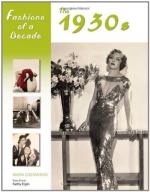|
This section contains 1,139 words (approx. 4 pages at 300 words per page) |

|
Prohibition and the Churches.
Even as the Depression that followed the stock-market crash of 1929 deepened to unprecedented lows, Americans were preoccupied with the Eighteenth Amendment to the Constitution, which prohibited the manufacture, sale, and transportation of alcoholic beverages. That amendment, which had been ratified in 1919, was the result of long, dedicated effort by reformers, many of them active in Protestant evangelical groups. The Women's Christian Temperance Union reflected the links between the effort to dry up America and the Protestant churches. The Anti-Saloon League, with strong ties to the Methodist Church, called itself the Protestant church in action.
Taking Sides.
National Prohibition was controversial from the beginning, with soldiers returning from World War I protesting that they had been kept from voting on the issue by failure of the states to provide adequate machinery for absentee voting. Within a short period the "wets," critics of...
|
This section contains 1,139 words (approx. 4 pages at 300 words per page) |

|




